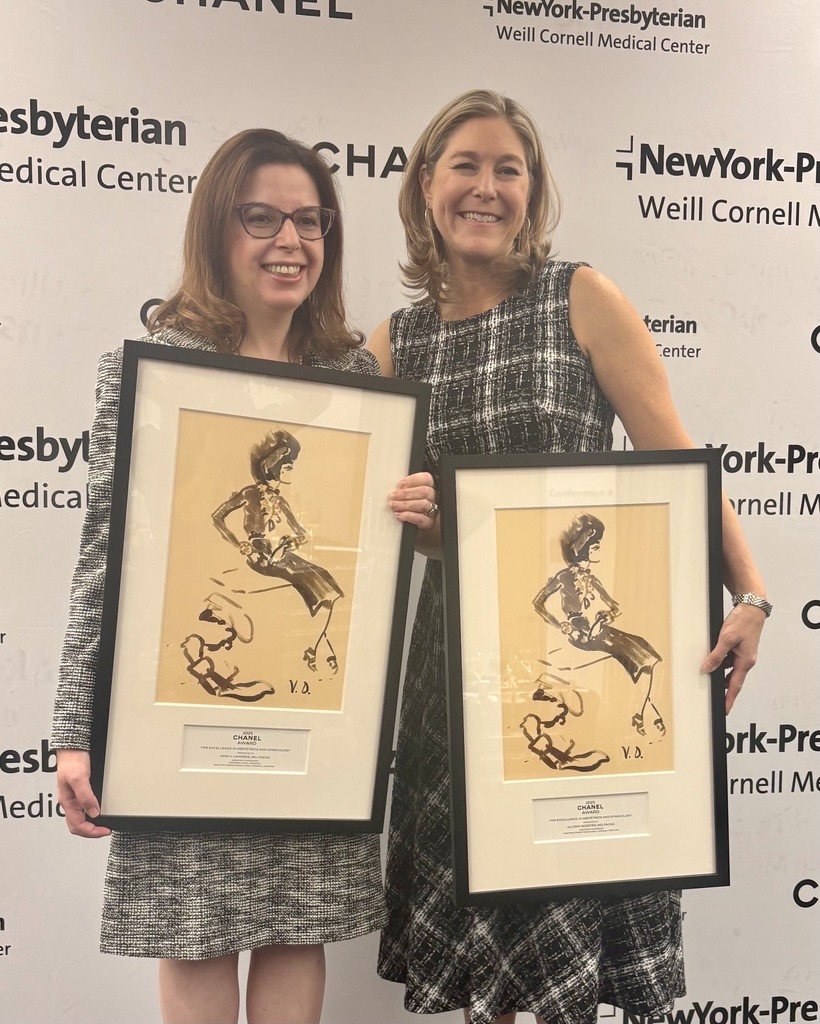
On October 23rd, Dr. Allison Boester and Dr. Inna Landres were honored with the CHANEL Award for Excellence in Obstetrics and Gynecology. The award was presented at the 19th annual award event led by CHANEL and NewYork-Presbyterian.
Dr. Boester, an obstetrician-gynecologist, has served on our faculty for 20 years, and Dr. Landres, a maternal-fetal medicine specialist, has been part of our faculty for 10 years. Both are outstanding clinicians, educators, and leaders who exemplify excellence in women's health at Weill Cornell Medicine.
Recent recipients:
2024 Melissa Frey, MD, and Corrina Oxford-Horrey, MD
2023 Eloise Chapman-Davis, MD
2022 Yelena Havryliuk, MD, and Sidney Wu, MD
Past years' recipients:
2016 Patricia Yarberry-Allen, MD and Steven Hockstein, MD
2015 J. Milton Hutson, MD and Robin B. Kalish, MD





